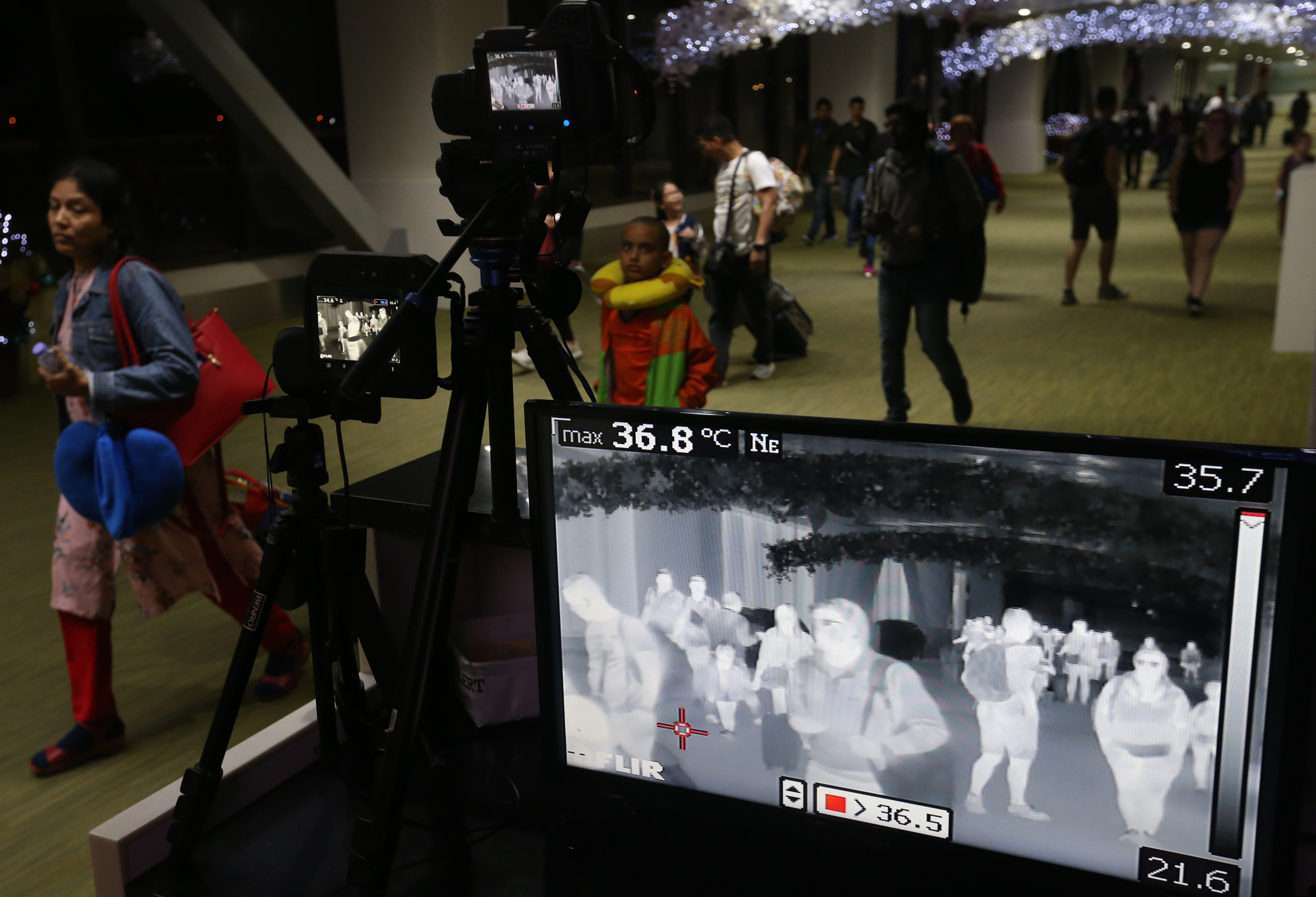Mystery disease: China rules out SARS

AIRPORT CHECK Quarantine officers wearing face masks scan passengers arriving from Thailand at Ninoy Aquino International Airport Terminal 1 as a precautionary measure against the mystery disease reported in China. —EDWIN BACASMAS
BEIJING — China on Sunday said a mysterious viral pneumonia outbreak that affected 59 people was not the flu-like virus severe acute respiratory syndrome (SARS) that killed hundreds more than a decade ago.
The infection was first reported last week in Wuhan, a central Chinese city with a population of more than 11 million—leading to online speculation about a resurgence of the highly contagious SARS virus.
“We have excluded several hypotheses, in particular the fact that it is a flu, an avian flu, an adenovirus, respiratory syndrome severe acute (SARS) or Middle East Respiratory Syndrome,” said the Wuhan health commission.
Wuhan police on Wednesday said they had punished eight people for “publishing or forwarding false information on the internet without verification.”
The health commission said seven of the 59 patients were seriously ill but none have died. All are being treated in quarantine.
Article continues after this advertisementThe infection broke out between Dec. 12 and 29, with some of the patients employed at a seafood market in the city that has since been closed for disinfection.
Article continues after this advertisementNo obvious evidence of human-to-human transmission has been found so far, it added.
“The reported link to a wholesale fish and live animal market could indicate an exposure link to animals,” the World Health Organization (WHO) said on Sunday.
Symptoms
The symptoms reported in patients were mainly fever, with a few patients having difficulty in breathing and chest radiographs showing invasive lesions on both lungs.
“The symptoms reported among the patients are common to several respiratory diseases, and pneumonia is common in the winter season,” said WHO, adding that the concentration of cases should be handled “prudently.”
It said it was against imposing any travel or trade restrictions on China.
SARS killed 349 people in mainland China and another 299 in Hong Kong in 2003.
The virus, which infected more than 8,000 people around the world, is believed to have originated in the southern Chinese province of Guangdong, according to WHO.
In Manila, the Department of Health (DOH) does not see the need yet to recommend a travel advisory against China as there are still no reported human-to-human transmissions of the mysterious pneumonia virus.
But Health Undersecretary Eric Domingo on Monday said that if it could not be avoided to travel to Wuhan, Filipino travelers should take extra precaution.
“Wear masks and avoid crowded places and areas near the market which we know is where the disease originated,” Domingo told reporters.
He added that treatment should immediately be sought once fever, cough or cold be experienced following the trip.
Travel declaration
Sen. Richard Gordon on Monday also suggested that government officials ask travelers coming from China to declare if they had visited Wuhan.
Gordon, who also chairs the Philippine Red Cross, said those who had been to Wuhan should undergo a screening and temperature check when they enter the Philippines.
He made the suggestion as the number of Chinese visitors in the country rises with the proliferation of Philippine offshore gaming operators.
Domingo said the health department remained wary as it did not know how this particular disease behaved.
“Similar to what happened with SARS, it turned out to be very fatal than other viral pneumonia. I think we are more cautious now just because we don’t know exactly how it will behave clinically. We don’t know if it’s going to be worse than other viruses or other kinds of pneumonia,” he said.
Because the strain of the virus is yet to be determined, current vaccines against the common flu may not be enough to combat the disease, Domingo said.
“We are not certain if it can provide protection. The possibility is probably low,” he said.
So far, what can be done is to observe proper hygiene such as handwashing using soap and water and using face masks, he said.—Reports from AFP, Jovic Yee and Leila B. Salaverria